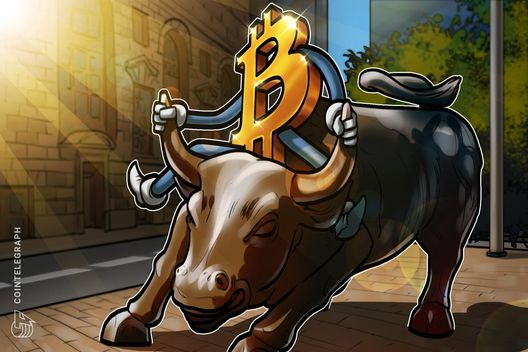

Wall Street is significantly increasing its investments in Bitcoin, fueled by various factors including the growing acceptance of Bitcoin as a store of value, regulatory clarity, and concerns surrounding the stability of the U.S. dollar. Recent data indicates a substantial inflow of capital into Bitcoin, particularly through exchange-traded funds (ETFs).
Crypto analyst Lark Davis reported that over the past three days, Wall Street firms have purchased approximately $1.5 billion worth of Bitcoin ETFs. This surge underscores the increasing appetite among institutional investors for Bitcoin exposure. The substantial inflow of capital from these investment vehicles has the potential to influence Bitcoin's market dynamics by limiting its availability on the open market and potentially affecting its price trajectory. This activity reinforces the perception of Bitcoin as a digital store of value, aligning with assessments of major investors viewing Bitcoin as a "new gold."
This surge in institutional participation is facilitated by the approval of spot Bitcoin ETFs by the Securities and Exchange Commission (SEC) in early 2024. These ETFs provide a more accessible and often cheaper way for investors to add Bitcoin to their portfolios compared to maintaining separate accounts with cryptocurrency exchanges. Firms such as BlackRock, Fidelity, and Ark Invest are at the forefront, injecting billions into these ETFs. As of April 2025, BlackRock's iShares Bitcoin Trust (IBIT) manages over $18 billion in assets, signaling strong mainstream demand.
Furthermore, Wall Street banks are increasingly moving into crypto custody, indicating a major ideological shift. While crypto-native firms like Coinbase currently dominate this space, traditional banks are exploring opportunities in this area. Morgan Stanley, for example, became the first major Wall Street bank to allow its advisors to recommend Bitcoin ETFs to clients, while Goldman Sachs has reportedly acquired $1.6 billion worth of them.
This increased interest in Bitcoin also coincides with what some analysts describe as a "do or die" moment for the U.S. dollar. The dollar has been on a steady decline since the pandemic, and the injection of money supply to stimulate economic recovery has further amplified the issue. The limited supply of Bitcoin, in contrast to the increasing supply of dollars, makes it an attractive asset for investors seeking to hedge against inflation and currency devaluation.
Several factors contribute to this situation. Mounting U.S. recession risks and high policy uncertainty are expected to drive Federal Reserve rate cuts and dollar weakness. Combined with structural de-dollarization and expanding global money supply, Bitcoin is positioned as a superior hedge and alternative reserve asset. This environment has enabled Bitcoin to decouple from equities and outperform traditional safe havens like gold.
Moreover, there's a growing synergy between traditional financial investments and the emerging crypto space. Cryptocurrency firms and exchanges are launching more traditional investment offerings, showcasing the increasing connection between crypto and traditional finance.
While some financial advisors remain wary of recommending Bitcoin due to fiduciary concerns, the overall trend indicates a growing acceptance and integration of Bitcoin into mainstream finance.